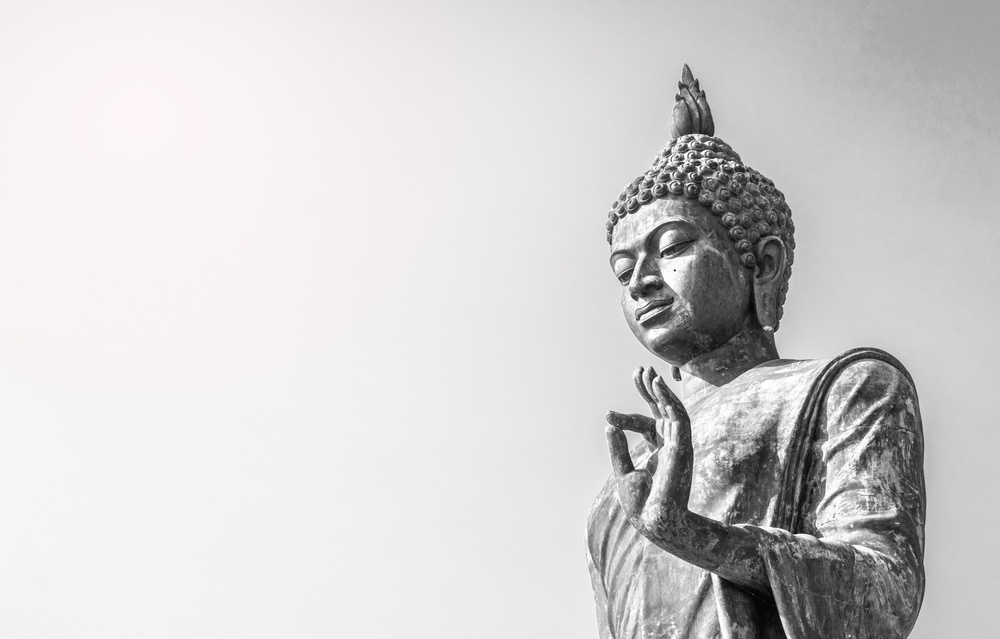The pandemic is not only challenging our health, work, family, food and fun but also disturbing our peace of mind. Adapting Buddha’s thinking at the hour of crisis will help us function better.
We have reached a point of questioning our existence: When would everything go back to normal? Why did this happen? Will everything be alright anytime soon?
While scientists are working hard to find medical solutions, concepts from Buddhism can provide us with some solace for our overburdened minds. The Buddha’s answer would be to focus solely on the existential facts, aiming first for understanding and then to adopt a pragmatic meditation practice.
The story of Mālunkyaputta
Consider the case of Mālunkyaputta, a disciple who kept troubling the Buddha some 2,500 years ago in ancient India. Mālunkyaputta prompted him to answer a series of complex questions.
One particular day, he walked up to the Buddha and insisted he needed to be given the answers.
The Buddha responded with an anecdote of a man wounded with a poisonous arrow coming to see a physician for medication. The man insisted that he would not let the arrow be taken out until he knew who shot him and how. The Buddha said by the time all the answers had been given the man would be dead.
The Buddha defined this teaching as eschewing answers to philosophical questions and dealing only with the existential facts:“there is birth…ageing…dying…grief, sorrow, suffering, lamentation, and despair” and their suppression.
What this means for us is that although it is natural to have such questions, worrying about the answers may only bring more suffering. We would be wiser to work to reduce our own suffering and that of others.
Soul-searching
The core of Buddhism is pure existentialism of dispassionate and detachment from the space-time world that results in nirvana. This state is defined simply as the absence of greed, hatred, and delusion.
Buddhism teaches us the coronavirus is causing us to experience some heightened forms of the three marks of existence – Tilakkhaṇa.
- Impermanence – Aniccā
- Suffering –Duhkha
- Non-self – Anatta
The pandemic’s sudden encroachment on our society, causing death and misery, reminds us of that impermanence. It shows us the inevitable nature of our own death and the associated suffering, leading us to do some soul-searching.
Mindfulness
Buddhism teaches meditation practices with deep introspection. These are designed to make us mindful of nature and help relieve us from sufferings, as described in several Buddhist suttas – the records that hold the Buddha’s original utterings.
The process involves loosening our grasp – those things we cling to that are governed by our desires – on both tangible and intangible things in life by realizing their true nature – relating them back to three tilakkhaṇa. Meditation invites us to be happy with the simplest and most basic things in life.
The meditation can guide our mind, calm our body and help our senses find peace and delight. It is hoped that meditation bring about our inherent yet dormant happiness without relying on our body or our dispositions, which are impermanent.
Benefits of Mindfulness
While these deliberations, because of their psychological effect, can bring in peace, happiness and even health benefits to the individual, there are other benefits.
- Such mindful practice can help us get on with our day-to-day life in a more disciplined and safer manner, which as we can see is extremely valuable in a crisis situation such as today.
- Meditation might help us not to panic (or panic buy) – to be conscious of our own behavior. We will be careful even with what we touch, or not touch (including our face). It would help us to be conscious of washing our hands regularly and mindful of others around us so that we are careful about any chances of passing on germs.
- Meditation works because of the thoughtfulness it creates. The pandemic can affect rich and poor (although there are also concerns it may increase inequity). Our meditation practices can help us evaluate the impermanence, decay and inevitable death of our existence; against any privileges we may have.
- Meditation can direct us to consider the possibility of living a happy life by meeting basic needs alone. For some, this can make us re-evaluate what we see as our misfortunes.
Buddhism may be seen as yet another of the world’s religions, with its own rituals around praying to deities and sending away demons. But the Buddha can also be seen as simply an insightful thinker and teacher. He proposed a natural outlook, providing solutions that do not appeal to any supernatural force.
Remember Covid-19 is curable and can be prevented. Please do not step out of home and do not believe rumors. For authentic updates & info, visit Seniors Today at http://bit.ly/2Qr2yZ0








